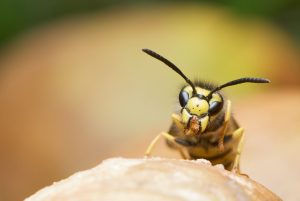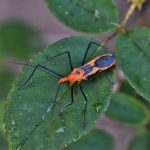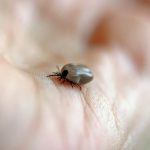Wacky Pest Wednesday: Yellow Jackets
 Another Wednesday and another edition of Wacky Pest Wednesday heading your way, Tri-County Pest Control fans! Please join us in our latest installment, as we cover a critter that you’re going to see this summer: the yellow jacket.
Another Wednesday and another edition of Wacky Pest Wednesday heading your way, Tri-County Pest Control fans! Please join us in our latest installment, as we cover a critter that you’re going to see this summer: the yellow jacket.
Yellow jackets, wasps, and bees may all belong to the same family of pests, but they are certainly separate critters. During the summer, you are bound to see yellow jackets, as they love the warm weather just as we do, yet they’ll be making their rounds to get a nice meal. Yellow jackets are carnivores, which leads into their natural tendency to be aggressive in the outdoors, meaning that if you seem to pose a threat, you may be on the receiving end of a very unfortunate sting. Like wasps, the yellow jackets can sting repeatedly, yet unlike wasps, yellow jackets are much more aggressive.
So, what separates the critters? Compared to a bee, yellow jackets will appear much smaller in size and stature. When compared to wasps, the yellow jacket will appear slender and brightly colored in stripes of black and yellow. But again, as we mentioned before, the most important defining factor of the yellow jacket is its aggression.
Did you know that yellow jackets burrow underground? Unlike bees or wasps, the yellow jacket will become a squatter in an abandoned animal burrow, and only come out when the hunting conditions are looking good for a nice showing of critters.
All yellow jackets are technically wasps, but not all wasps are yellow jackets. Regardless of what that flying critter is, it is generally not a good idea to swat at it as it flies by. Instead, just stay calm and relaxed, and the pest will be on its way soon enough. If a yellow jacket decides to land on you, know that a soft blow of air to mimic a breeze will be enough to get it to fly away without any complications. Just remember: don’t panic!
Yellow jackets can be social creatures, meaning that the one yellow jacket you see may not be the only one around—stay vigilant. Should you see a bunch of them flying around your yard in the summer, know that you can always reach out to us for help!
Enjoy your Wednesday!





